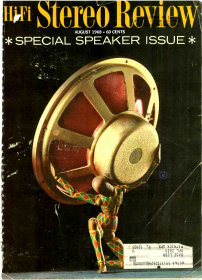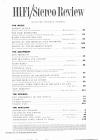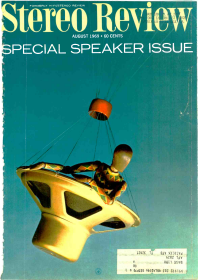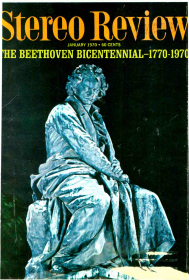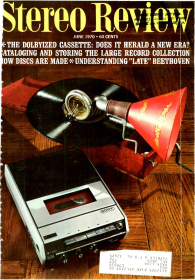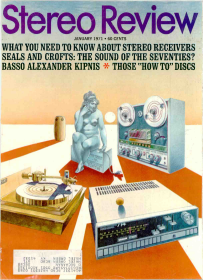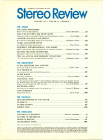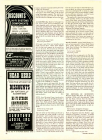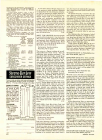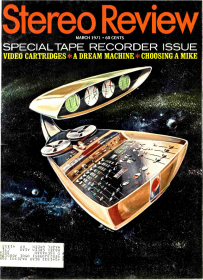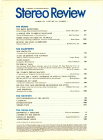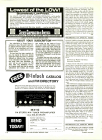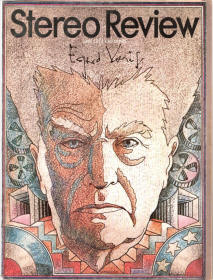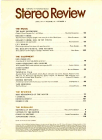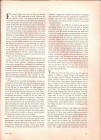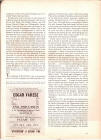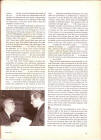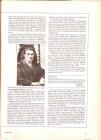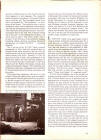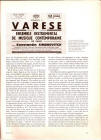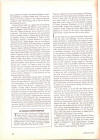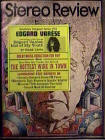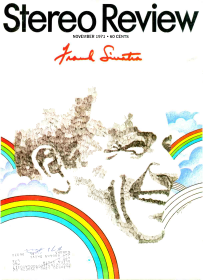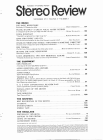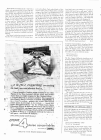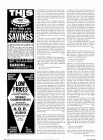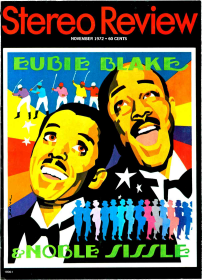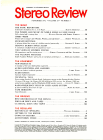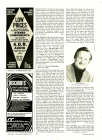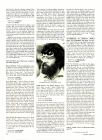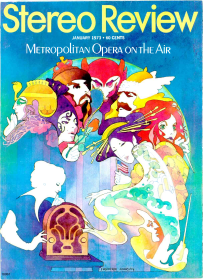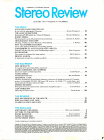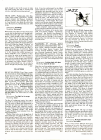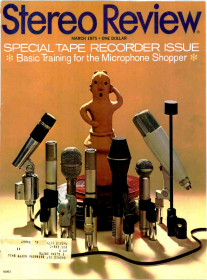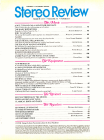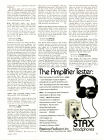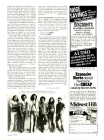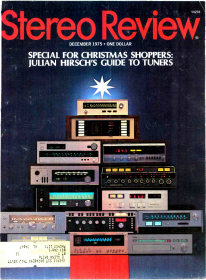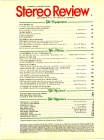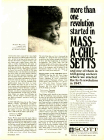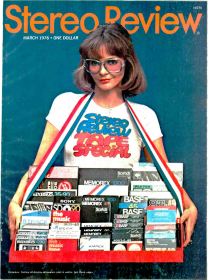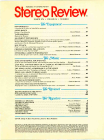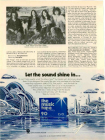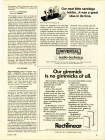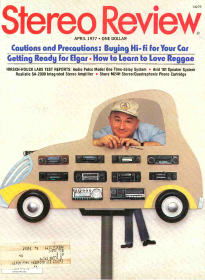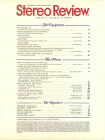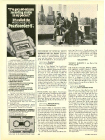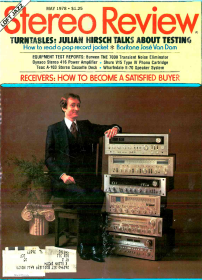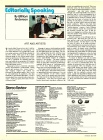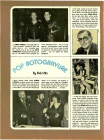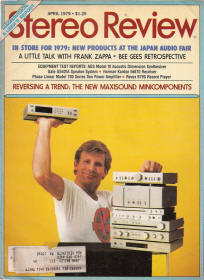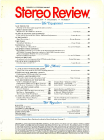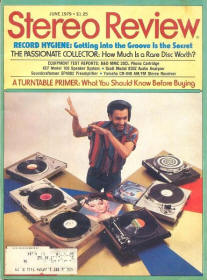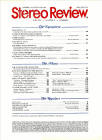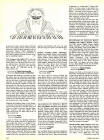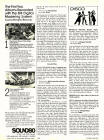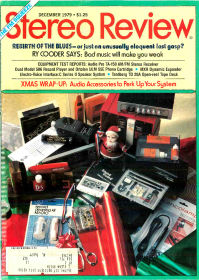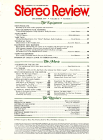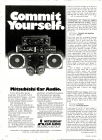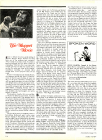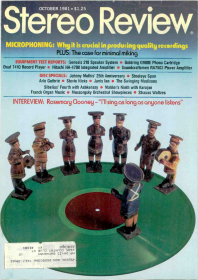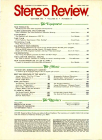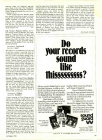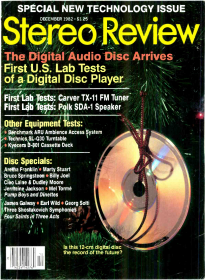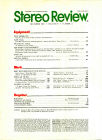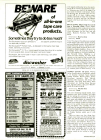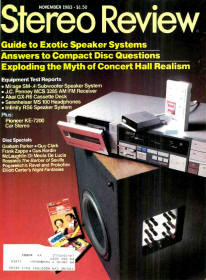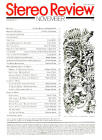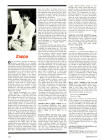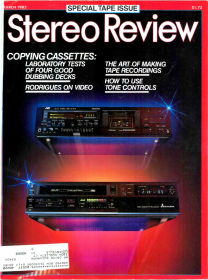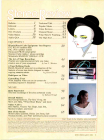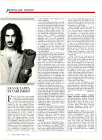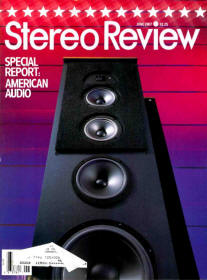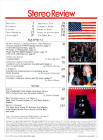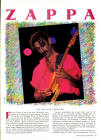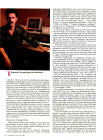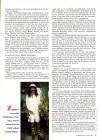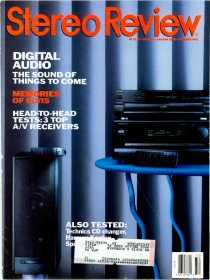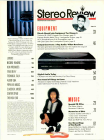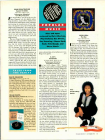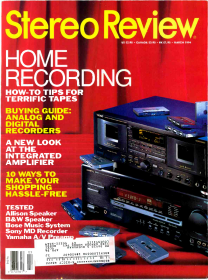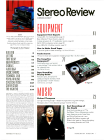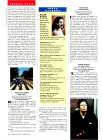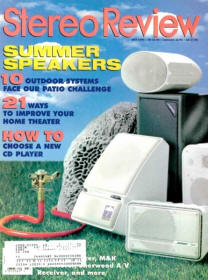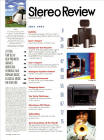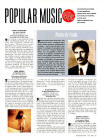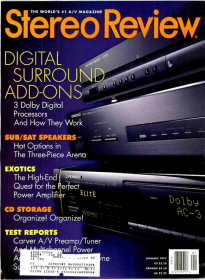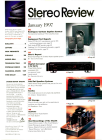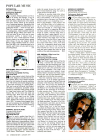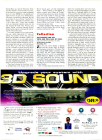Stereo Review
1968 August
Vol. 21 No. 2
Mothers
Of Invention: We're Only In It For The Money
By Don Heckman, p 100
As with any recording by the Mothers, there are so many aspects to report on that one hardly knows where to begin. (read more)
Source: worldradiohistory.com
Frank Zappa and his Mothers of Invention have been working on a film titled (that's right) "Uncle Meat." According to Zappa, he is $300,000 short of being able to finish it. When, and if, they do, it should be one of the more remarkable neighborhood-theater events of the season. (read more)
Source: worldradiohistory.com
1970 January
Vol. 24 No. 1
The
Mothers Of Invention: The **** Of The Mothers
By Don Heckman, pp 118, 120
I am convinced that Frank Zappa possesses one of the most fascinating musical minds of the decade. He has been passing in disguise as a teen-age idol, a rock-&-roll star, a freak, and a nonpareil humorist, but such masquerades should not distract us from the innovative excellence of his music. (read more)
Source: worldradiohistory.com
Frank Zappa, a sort of unwashed, people's (read that without the comma if you insist) version of John Cage, talked Reprise into starting two record labels, Bizarre and Straight, and I guess nobody need be told that the Mothers of Invention record for Bizarre. (read more)
Source: worldradiohistory.com
1971 January
Vol. 26 No. 1
The
Mothers Of Invention: Weasels Ripped My Flesh
By Don Heckman, pp 96, 100
Here are fragments from the Mothers' large collection of recorded "out-takes," all dolled up with one of the ugliest covers I've ever seen (it depicts, in living color, the record's title). (read more)
Source: worldradiohistory.com
The combination of Zappa compositions and Zappa arrangements (Zapprrangements?) provides a steady progression of unexpected sounds. Almost all of the first side is extremely good acid rock, with Zappa's guitar hurtling through the air at you. (read more)
Source: worldradiohistory.com
1971 June
Vol. 26 No. 6
Edgard Varèse
By Eric Salzman, pp 57-61, 64-68
Edgard Varèse:
Idol of My Youth
By Frank Zappa, pp 62-63
Stereo Review presents the nineteenth article in the American Composers Series – Edgard Varèse by Eric Salzman, containing a 2-page article by Frank Zappa.
Source: slime.oofytv.set
1971 November
Vol. 27 No. 5
The
Mothers Of Invention: The Mothers, Fillmore East – June 1971
By Don Heckman, pp 132, 136
It's a good thing we have Frank Zappa. Without his insane blend of rock, perversion, obscenity, theater, classical music, and aleatorism, the pop scene would be in sad straits. (read more)
Source: worldradiohistory.com
If you've got the time to listen to Zappa – and it takes time – you'll find he's intelligent and shrewd, sometimes astute, perhaps talented. I've come to the conclusion that Zappa couldn't care less what anybody thinks because he doesn't believe anybody thinks; they are all programmed and believe what they see in TV ads. (read more)
Source: worldradiohistory.com
When I was a kid I heard or read at least once a week that the big bands were coming back. Despite being only eight and a certified non-genius, I knew enough to keep saying "baloney." (read more)
Source: worldradiohistory.com
Frank Zappa, the Franz Liszt, Jonathan Swift, and Spike Jones of the pop avant-garde, is the standard bearer of whatever is left of that theatrical school of rock music which is at once commedia dell'arte zaniness, social critique, and high-class musicianship on a low-brow trip. (read more)
Source: worldradiohistory.com
1975 December
Vol. 35 No. 6
Frank
Zappa & The Mothers Of Invention: One Size Fits All
By Noel Coppage, p 101
Frank Zappa really should go into television or film or something visual and stop waiting for many of us to grasp the significance of the ugly sounds he makes in the name of music. (read more)
Source: worldradiohistory.com
Frank Zappa's career is based on the old rule of successful preachers and comedians: expose the idiocies and corruptions of society without ever telling the audience, who agrees with you, that you are talking about them. (read more)
Source: worldradiohistory.com
Frank Zappa's ability to astonish the middle-class listening public has dwindled so much that these days he comes across as the musical male equivalent of one of those eccentric shopping-bag ladies muttering darkly to herself in a doorway. (read more)
Source: worldradiohistory.com
A little heart-tugging soap opera here – maybe Patient Griselda, Backstage Drudge. Anyway, once upon a time there was a lady named B.J. whose job it was to cook meals for bands that play New York City's Palladium Theater. When FRANK ZAPPA was in town recently (his latest LP is appropriately called "Zappa in New York," Discreet 2D 2290) he was appalled to discover that B.J. was trying to coax culinary miracles out of a hot plate. The kind Prince sent his chamberlain John out for a real live stove. John hopped a taxi down to a second-hand shop on Canal Street, bought a stove, tossed it into the cab's back seat, and hauled it back to a surprised and grateful B.J., shown here with Zappa sort of heating up a little something on the back burner. And so they ate happily ever after.
Source: worldradiohistory.com
The following excerpts from our conversation, alternately witty, scathing, scatological, and thoughtful, should give you an idea of what I mean. I should add, by the way, that although we did not get along particularly well – at one point he called me a pinhead and I'm sure he meant it – I still respect the man as much as I respect anyone in pop music. After all, he plays a mean guitar. (read more)
Source: slime.oofytv.set
Introducing his own label gives Frank Zappa the opportunity to deposit several giant dodo's on your carpet and then, in an equally infantile way, wait for you to tell him what a good boy he is. (read more)
Source: worldradiohistory.com
I don't know if "Act II" of "Joe's Garage" is forthcoming, but I hope so. "Act I" sure does end incomprehensibly. As usual, Zappa milks his favorite obsessions: "Joe's Garage" is a slightly surrealistic sound drama about garage bands, groupie sex, and all-American sleaze. (read more)
Source: worldradiohistory.com
I began listening to Frank Zappa and the Mothers of Invention in high school, more than thirteen years ago, and for years afterward I devoured each new release of his with unseemly passion. Among the things of lasting value Zappa introduced me to were contemporary jazz, twentieth-century classical composers, and healthy skepticism. (read more)
Source: worldradiohistory.com
1982 December
Vol. 47 No. 12
Frank
Zappa: Ship Arriving Too Late to Save a Drowning Witch
By Peter Reilly, p 102
Five of the songs on this album are standard Frank Zappa tirades about almost anything and everything delivered with his usual petulance. The sixth, however, Valley Girl, is a lightly wicked piece of genuine satire. (read more)
Source: worldradiohistory.com
There are reviews of Zappa's albums London Smphony Orchestra, Volume 1 and The Man from Utopia.
Source: worldradiohistory.com
Zappa's albums Boulez Conducts Zappa: The Perfect Stranger and Them or Us reviewed.
Source: worldradiohistory.com
"Narrow-mindedness has always been one of the prime factors in American society," Zappa told me recently over coffee at New York's Mayfair Hotel. "It's a big blind spot in America, the closed-mindedness, the small-mindedness, the resistance to change. There's a resistance to change and an artificial support of things that are new, because Americans have a resistance to going all the way. So when people say 'That's not music,' that's just another manifestation of closed-mindedness. It's an educational problem." (read more)
Source: americanradiohistory.com
FRANK ZAPPA: Beat the Boots, Volume 2. RHINO R2 7 1017/7
1023 (eight discs).
Another collection of bootleg Zappa recordings, made between
1968 and 1978, reclaimed and rereleased by the artist himself,
with the original sometimes cool, sometimes dingy artwork and
highly variable sound quality left intact. It pales compared
with FZ's carefully compiled "You Can't Do That on Stage Anymore"
series, but the package has a strange appeal, like a reprocessed
piece of underground pop-culture history.
Source: worldradiohistory.com
"Here are the ones I'd say no home should be without: Absolutely Free, We're Only in It for the Money, Uncle Meat, Tinsel Town Rebellion, The Best Band ou Never Heard in Your Life, You Can't Do That Onstage Anmore, Vol. 5."
Source: worldradiohistory.com
The late Frank Zappa wore many hats during his career – composer, bandleader, satirist, guitarist, anticensorship crusader – but he won my heart in particular for perhaps the greatest album title of all time, "Weasels Ripped My Flesh." So I am gratified to report that virtually all of Zappa's recorded output (nearly sixty albums, including "Weasels" from 1970) has just arrived on CD, courtesy cf Rykodisc. All were remastered by Zappa himself before his untimely death in 1993, and most feature revamped artwork by the original designer, Cal Schenkel. Pick hit: "We're Only in It for the Money," in a cleaned-up version of the original 1968 mix (the first CD reissue featured updated rhythm tracks that most fans disliked).
Source: worldradiohistory.com
"Läther" represents both the best and the worst of Frank Zappa. My advice: Savor the best, overlook the worst. (read more)
Source: worldradiohistory.com
